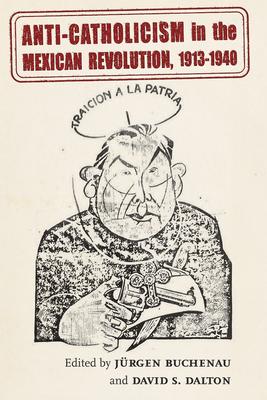Anti-Catholicism in the Mexican Revolution, 1913-1940 examines anti-Catholic leaders and movements during the Mexican Revolution, an era that resulted in a constitution denying the Church political rights. Anti-Catholic Mexicans recognized a common enemy in a politically active Church in a predominantly Catholic nation. Many books have elucidated the popular roots and diversity of Roman Catholicism in Mexico, but the perspective of the Church's adversaries has remained much less understood.
This volume provides a fresh perspective on the violent conflict between Catholics and the revolutionary state. The zeal with which anti-Catholics pursued their goals--and the equal vigor with which Catholics defended their Church and their faith--explains why the conflict between Catholics and anti-Catholics turned violent, culminating in the Cristero Rebellion (1926-1929).
Collecting essays by a team of senior scholars in history and cultural studies, the book includes chapters on anti-Catholic leaders and intellectuals, movements promoting scientific education and anti-alcohol campaigns, muralism, feminist activists, and Mormons and Mennonites.

Anti-Catholicism in the Mexican Revolution, 1913-1940 examines anti-Catholic leaders and movements during the Mexican Revolution, an era that resulted in a constitution denying the Church political rights. Anti-Catholic Mexicans recognized a common enemy in a politically active Church in a predominantly Catholic nation. Many books have elucidated the popular roots and diversity of Roman Catholicism in Mexico, but the perspective of the Church's adversaries has remained much less understood.
This volume provides a fresh perspective on the violent conflict between Catholics and the revolutionary state. The zeal with which anti-Catholics pursued their goals--and the equal vigor with which Catholics defended their Church and their faith--explains why the conflict between Catholics and anti-Catholics turned violent, culminating in the Cristero Rebellion (1926-1929).
Collecting essays by a team of senior scholars in history and cultural studies, the book includes chapters on anti-Catholic leaders and intellectuals, movements promoting scientific education and anti-alcohol campaigns, muralism, feminist activists, and Mormons and Mennonites.